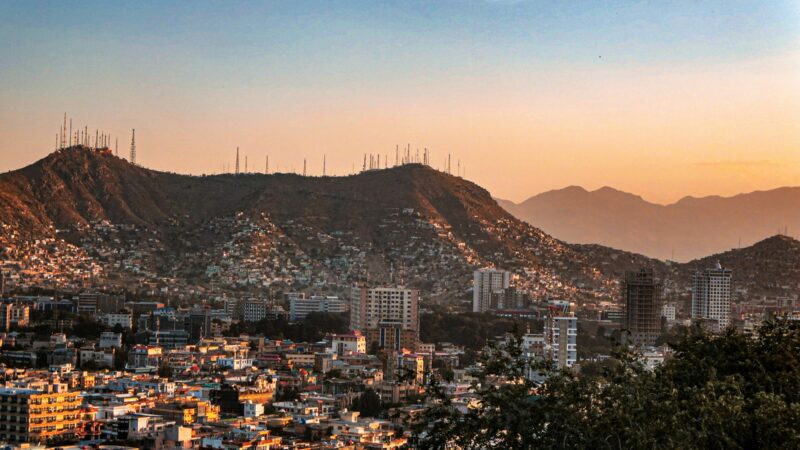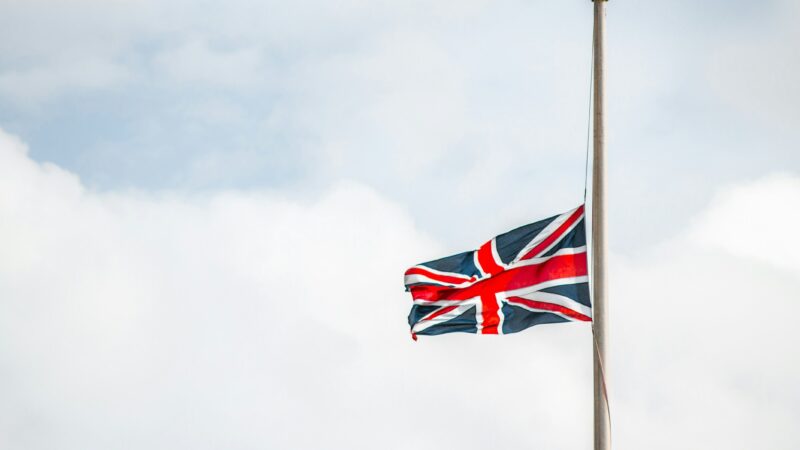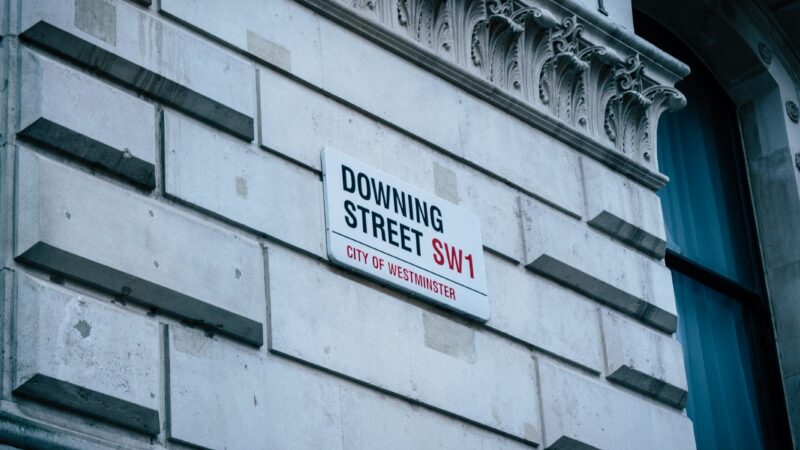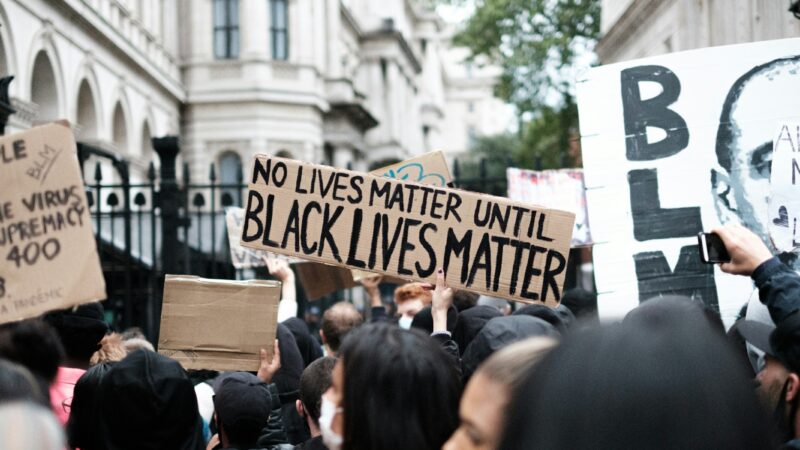What we must take from Marx
Britain is a nation that enjoys making light of its peculiarities and eccentricities. We enjoy having a laugh over a slightly self deprecating and scathing analysis of the fine-points of our society. We are keenly aware of the little things that set us apart – most famously the class system.
Unblemished by the tumults of the continent, we never saw fit to put whole socio-economic stratas to death, and such, on this isle has evolved a range of economic classes; that at times can seem whole cultures within themselves. The topic of a good Harry Enfield sketch, the plethora of verbal inflections in dialect, or what one tends to do on a Sunday, to general mannerism and pattern of speech – there is much that can set one into working, middle, or upper class. We view class not through a reasoned analysis, nor through a simple review of how much money is in one’s wallet – in fact, these tend to be quite secondary thoughts when judging someone’s place in the hierarchy.
Class is understood through a range of social signifiers, all of which have their root in one’s upbringing, which have their root in the upbringing of one’s father, and his father, and his father, and so on.
No matter how much money you win for your coffers, no matter how noble and high your method of work is, no matter how much you may put on a rendition of received pronunciation – you cannot really change your class. You may own a country estate, go shooting pheasants with the lads on Sunday, you may call your son Tarquin, but if your Dad came from a pit village, and passed down the speech, mannerism, and sentiments of said pit village to you – you’ll never leave the place. You may be able to win your son a jaunt up the social ladder, Joseph Chamberlain’s little known son called Neville transcended his father’s position in the middle class by growing up far away from his Dad at Eton, managing something of a different upbringing thereby.
The ultimate result of this strange institution is an utterly cartoonish understanding of class. It is entirely possible in this view of things, that a well-born feckless son from a manor in the home counties could spend his days shepherding pit-ponies around mineshafts in South Wales, and still outrank Gwyn Jones who was born in the pit village just adjacent, and made enough money to buy that very country estate mentioned.
Do not suppose that I write against such cartoons, they are quite wonderful, and I wish not for some Jacobin iconoclasm to mandate state-approved classes based upon occupation. These things make brilliant Harry Enfield sketches, however, when we seek to understand British society, and thereby create a successful right-wing movement, we have no time for the twee cartoons of such a sketch. We can not begin to engage in a successful right-wing, or nationalist political program without a firm understanding of how social classes interact in this country, every political movement must find itself between a class antagonism, lest it fail. Hence, we must begin to integrate Marx’s view of class into our thinking. Marx, despite standing in near complete contradiction to us, is the only thinker from which we can concretely define and analyse the real and tangible class divisions within the British people, beyond the thesis of a sketch.
Marxist class analysis centres around how one relates to the means of production. Totally ignoring someone’s salary or mannerisms – Marx defines class purely through the manner in which one works. We all know of the two main classes of industrial capitalism he expounds upon – the proletarian, and the bourgeois. The bourgeois class owns means of production (in Marx’s time this could be a cotton mill or a steelworks) he holds this capital, and purchases wage labour in order to produce goods with it. The Proletarian class are the folk from whom wage labour is purchased, not owning any means of production themselves, the working class sell their labour-power in order to make a living.
Furthermore, Marx introduces the petit-bourgeois class. Marxists (who cannot for the life of them agree on anything) disagree on what exactly this class is, and whom makes up its ranks. Simply, it could be said, the petit-bourgeois class may own alternative forms of capital (such as a small shop) but are unlikely to purchase labour power in the working of this capital, and wherein he does, he likely works side by side with the proletarians he pays.
Now, Marx does not ramble on like this all day, and he eventually gets to the point: antagonism. The ultimate purpose of delving into these social relations is getting to grips with the separate desires and interests each class works toward. To put it simply, the proletarian seeks to labour as little as possible for the greatest wage. The bourgeois, inversely, wishes for the proletarian to labour as much for the smallest possible wage.
In this, we find Marx’s most valuable lesson. In taking up his understanding of class, we need not blanketly throw his particular analysis of the Victorian urban sprawl onto our day, we need not even use the word bourgeois and such – in fact, the economic relations of our day can be said to have deviated so much from Marx’s day that such terms are useless. We must centre in on the antagonism between the classes, while also putting key caveats on our understanding of it.
If one is to ignore this doctrine of antagonism, then one is to ignore nearly all of British political history. Is not the rift that has dominated our nation since even before the Civil War that of Whig and Tory? One cannot separate these two groups from their diametric class antagonism. The Tory of the country, who profits from agriculture, who finds himself well off in the ancient landed hierarchies. The Whig who profits from the city, who thrives in more modern and capitalistic relations of the mill and steelwork. There are few debates of British political history that can be fully understood without getting to grips with this specific sociological battle. We cannot look to Peel’s full thrust support for the abolition of the corn laws, and championing of free trade thereby, without understanding that the Whig sought out this reform in order to ensure the flow of cheap grain into urban centres, and the mouths of their proletarians, at the expense of the Tory landowner and his tenant. Without this economic antagonism, there is no movement to abolish the corn laws.
Now, this is not to say that all hitherto history is that of class struggle, we should not assume that Peel was consciously plotting to pull the rug under the Tory landowner – no one thinks this way, in fact, class antagonism while informing these political disputes can sometimes enter the sub-conscious. We can understand this doctrine without becoming totally affixed to it.
Principally, we must maintain that class is not the prime fraternity of man. There is no international working class or the like, and such is a fanciful idea. Ultimately, one’s nation and ethnicity trump their class identity. Leftists like to imagine that they have more in common with a working class Chinaman than a billionaire of their ethnic kin, but while Richard Branson may have vastly different economic interests; you can share a conversation in your mutually native language, you celebrate the same festivities every year, you probably share the same cultural references and tidbits. Man is much more than his economic interests, and his identity goes much beyond what he’d like to be paid at work – such a totalising view of class ignores the depth that makes up men’s lives.
Nonetheless, we can simultaneously hold that ethnos is the prime fraternity of man, while recognising the inherent divisions within such a thing. Without a comprehension of these differences, we will remain ignorant as to how to effectively mobilise our people in a political movement. Blindly assuming that if we put forward a political program that broadly seeks to better the condition of the native Briton, that such will rally all sections of our people will lead us to ruin.
While it is true that in ‘diverse’ societies, democracy simply becomes an ethnic headcount (see South Africa) such diversity is concentrated in certain areas of our country. Areas such as Bradford fit this model much more, wherein the diametric antagonism between the native and immigrant groups naturally trumps the bounds of class, however in other areas of the nation this is not such. (Ironically, it is class antagonism that brought this into being. Former industrial areas are highly saturated with immigrant groups due to the importation of cheap labour into mills and cotton works, for example.) Thereby, we must understand the class antagonisms we can ride, and the classes with whom we have appeal.
To illustrate this, let us think to the average voter in the 1983 general election, the man who voted for Thatcher, and the man who voted for Foot. The man who voted for Thatcher, 38 years on, has likely benefited from the deindustrialisation of the country, much more attuned to a neoliberal regime of international finance and services. He is likely insulated from the demographic issues of the nation, perhaps he will scoff at some anti-social behaviour on the tube, but he is not bound by public transport. Let us think now to the man who voted for Foot, he has seen the industries his family worked in for generations crumble before his eyes, and the economic impetus of his town dry up. Equally, he has seen an unprecedented swamping of its demographic character in mere decades. He has lost his home, and his work at the behest of short sighted, shock doctrinaire neoliberalism.
Who is more likely, do you think, to support a nationalist cause? We all know that the working class tend to be more right-wing in our day, but if we do not understand the antagonism (being in this case, deindustrialisation) that this tendency has its roots in, then we shall fail to harness this support. Once we comprehend this, we will understand that nationalism has no future among the jungles of the free market, it must entail economic nationalism, and an active role of the state in economic affairs in order to steer the economy toward the national interest.
Without being at the parapet of class antagonism, that fuels all successful political movements, we march aimlessly into bogs and marshes. We must understand that nationalism has to be a movement in the interests of the disenfranchised native working class, that acts in the interests of that class. Without this, we are but ideologues barking into the wind.











The Plastic University Bubble
I remember visiting a neighbour’s house as a child, and she had bought us an intriguing toy. ‘Super Elastic Bubble Plastic’ was its name. It was a viscous plastic material that came in a tube, along with a straw, which was used to blow it into a bubble shape (much like chewing gum). You could then throw it around and use it as a playball, and the strengthen it had through its artificiality meant it would not pop.
Our university system is much like this toy, in that it is an artificial bubble, sustained only by the will of the state managerial elite, in whose childlike hands it rests. The fundamental fact of the modern university is that it has been transformed from an institution oriented to promote the pursuit of knowledge, into a factory designed to churn out a constant supply of future managerial candidates. Such a change was an intentional act of our political class, beginning with John Major and finishing completion under Tony Blair’s New Labour.
In a debate in the House of Commons in 1983, William Waldegrave, a junior minister in Mrs Thatcher’s government told the House that “Young home entrants to university were 7.5 per cent. of the 18-year-old age group from 1978 to 1980, 7.2 per cent. in 1981 and 6.9 per cent,” and in response to criticism of university budget cuts he explained that this was to “protect the research base.” Restricting university attendance – to dare I say, an ‘elite’ few – strengthened the purpose of the university as a place of high quality research.
In contrast, John Major’s government reformed higher education with the Further and Higher Education Act 1992 leading to the proliferation in the number of universities, with 33 polytechnic colleges becoming universities and a further 45 universities being created since the Act was passed. The number of 18-year olds entering university thus skyrocketed, and Tony Blair laid out his plans to take this further, telling the Labour Party Conference in 1999 that “Today I set a target of 50% of young adults going into higher education in the next century.”
Although this is framed as an egalitarian policy intended to remove class and socioeconomic backgrounds to university attendance, such notions can be swiftly dismissed. As James Burnham, in his prescient The Managerial Revolution, tells us:
No clearer sign of this is needed than the fact that Leeds Beckett University, that bastion of quality British higher education, advises that “bachelor’s degrees in subjects such as economics, business studies or English would offer entry into generic civil servant roles.” Furthermore, a look at the government’s Civil Service Fast Track scheme shows that applicants must have only ‘achieved’ a 2:2 to apply for 11 out of the 17 scheme pathways. A 2:2 is typically a grade of 50-59%. Mediocrity is now a requirement for entry into the managerial caste. Never mind trying to achieve a first class degree and achieve something with your life; come and join the managers in Whitehall, or one of the hundreds of government quangos, is the message of Mr Blair et al.
The economics of the university system do not make sense. In the words of Shimeon Lee of the Taxpayer’s Alliance:
International students, paying tens of thousands to study in the UK, are economic tools designed to subsidise the cost for British entrants. Therefore, are simply a policy instrument used to enable as many 18-year-old Brits to go to university as possible.
Let us reflect on what this means. The managerial class, understanding that it needs a supply of fresh-faced youth to rise through its ranks with meaningless degrees in order to sustain itself, has over the past three decades opened the floodgates to millions of foreign students for no other reason than to strengthen its existence through numbers.
For those of us dissatisfied with the cultural and moral vacuum that is modern Britain, the solution is obvious. Repeal the 1992 Act, revert every post-92 university back to a polytechnic college, and abolish international student visas. Maybe then the youth of today will do something useful, rather than studying English (which we all already speak, anyway) or gender studies only to go on and work for Ofcom or Defra.
There are signs that we are heading in the right direction. Recently, Cardiff University announced that 400 academic jobs (7%) will likely be cut because of economic pressures. Revealingly, the university’s vice chancellor Wendy Larner explained this as a result of “the context of declining international student applications and increasing cost pressures, and the need to adapt to survive.” At least she was honest.
Our universities, and schools, now operate only as a training ground for future managers. Rather than keeping it artificially inflated, like a plastic child’s toy, let the bubble pop. Let the children aspire to work in business, learn a trade, or do something else that will actually benefit society.
Photo Credit.